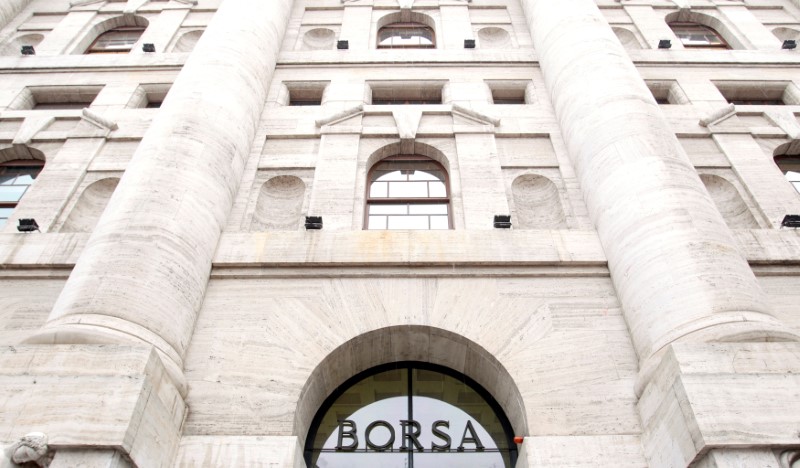By Helen Reid
LONDON (Reuters) - European shares tumbled for a second day on Tuesday as investors took fright over a renewed risk of the euro zone breaking up with Italy heading toward a repeat election which could become a proxy referendum on its euro membership.
Italy's main stock index (FTMIB) extended early losses to sink to a 10-month low, down 3 percent, by 0840 GMT. Bank shares (FTIT8300) slumped another 4.8 percent to a fresh 13-month low, bruised by a sell-off in Italian government bonds, a core part of the banks' portfolios.
The index was set for its worst daily loss in 21 months as trade in some banks was halted due to excessive losses.
The head of Italy's central bank said any move to weaken the country's public finances could undermine confidence and years of valuable reforms.
Italy's president set the country on a path to fresh elections on Monday, appointing a former International Monetary Fund official as interim prime minister with the task of planning for snap polls and passing the next budget.
After inconclusive elections in March, two anti-establishment parties dropped a coalition plan at the weekend after the president vetoed their choice of a eurosceptic to become economy minister.
Investors feared a polarizing election campaign which could deliver a deeply eurosceptic government, threatening the bloc's cohesion. "Italian political risk is delayed rather than resolved," said UBS's chief investment office.
Intesa Sanpaolo (MI:ISP), BPER Banca (MI:EMII), Unicredit (MI:CRDI) and UBI Banca (MI:UBI) fell sharply, down 4.4 to 5.8 percent, while Poste Italiane (MI:PST) also tumbled 5.7 percent.
"Banks with lower sovereign exposure, lower NPL (non-performing loan) stock and higher profitability seem more defensive in this environment (like Intesa Sanpaolo, Mediobanca, Fineco) versus the mid-cap banks (which are more vulnerable given higher sovereign exposure, higher NPLs stock and lower profitability)," said Citi analysts.
Intesa, Unicredit, Banco BPM, UBI Banca, BPER Banca and Mediobanca together have a total of 166.6 billion euros ($192 billion) exposure to Italian sovereign debt, according to Citi calculations.
The reawakened anxieties caused Sentix's euro zone break-up index to climb to its highest since April 2017, when investors feared a eurosceptic Le Pen presidency in France.
The pan-European STOXX 600 (STOXX) fell 1.6 percent, with banks the worst-performing. The euro zone's banks index (SX7E) sank 4.3 percent and was on track for its biggest monthly drop since the Brexit vote in June 2016.
The stress in Italy spread to other peripheral euro zone markets, with Spanish and Portuguese bank stocks firmly in the firing line.
Banco Comercial Portugues (LS:BCP) fell 6.7 percent, while Spain's Santander (MC:SAN) and Sabadell (MC:SABE) led the IBEX down with 5.9 and 6 percent drops. Spanish stocks slid 2.9 percent while Portugal (PSI20) fell 2.7 percent.
JP Morgan analysts repeated their earlier call for investors to move out of Italian equities and into Germany. German Bunds have been acting as a safe haven for investors, with yields on the euro zone benchmark bond falling, but Germany's DAX was still shedding 1.8 percent as investors fled risky assets.
Outside of politics-driven moves, British retailer Dixons Carphone (L:DC) plunged 21 percent after a profit warning. The new chief executive said the company needed to close stores at a time of a contracting UK electrical market.
